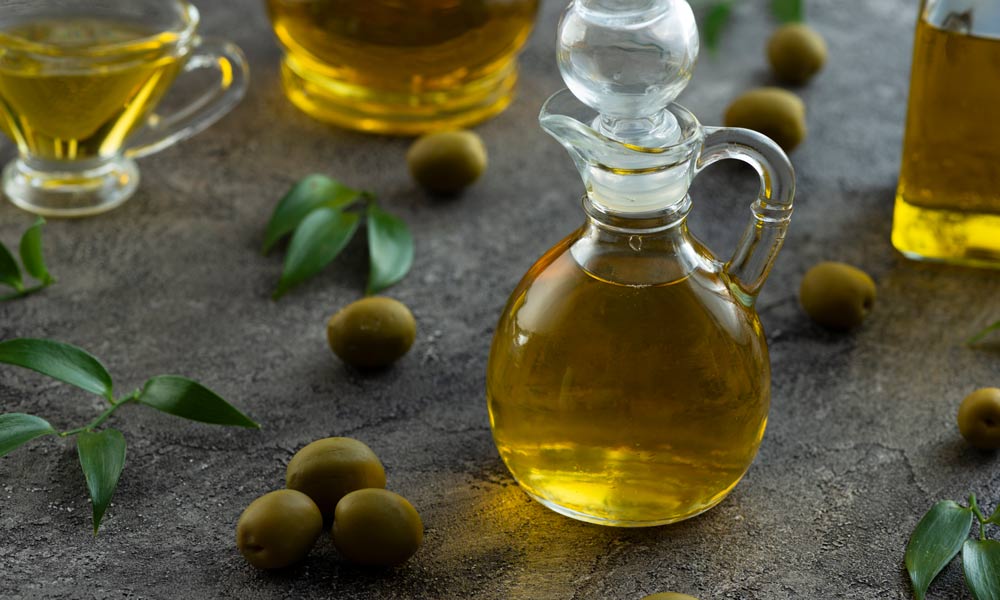Olive oil, often referred to as liquid gold, holds a revered place in Mediterranean cuisine and beyond. Renowned for its rich flavor, health benefits, and cultural significance, olive oil has been a staple in culinary traditions for centuries, particularly in countries like Croatia, Italy, Greece, and Spain. Let’s explore the fascinating world of olive oil, from its production to its culinary uses and health benefits:
Production Process
Olive oil is extracted from the fruit of the olive tree (Olea europaea), which thrives in the Mediterranean climate. The olives are harvested when they reach optimal ripeness, typically in the autumn months. They are then pressed to extract their natural oils, a process that can vary in intensity and temperature depending on the desired quality of the oil.

Types of Olive Oil
There are several types of olive oil, each distinguished by its method of extraction and quality:
- Extra Virgin Olive Oil: Considered the highest quality and most flavorful, extra virgin olive oil is extracted using mechanical means (pressing) without any chemical treatments. It retains the natural antioxidants, vitamins, and flavors of the olives, making it ideal for drizzling over salads, dipping bread, or finishing dishes.
- Virgin Olive Oil: Like extra virgin olive oil, virgin olive oil is also extracted without chemicals but has slightly higher acidity levels and a milder flavor profile.
- Pure Olive Oil: Sometimes labeled as just “olive oil,” this is a blend of virgin olive oil and refined olive oil. It has a lighter flavor and is suitable for cooking and frying due to its higher smoke point.
- Light Olive Oil: This is a refined olive oil that undergoes further processing, resulting in a lighter color and milder flavor. Despite its name, it has the same calorie content as other olive oils.
Culinary Uses
Olive oil is prized for its versatility in the kitchen:
- Cooking: It’s suitable for sautéing, frying, and roasting due to its high smoke point and stable chemical structure.
- Dressing and Marinades: Extra virgin olive oil adds depth and richness to dressings, marinades, and sauces, enhancing flavors without overpowering other ingredients.
- Finishing Touch: Drizzle over grilled vegetables, pasta, or soups to add a final burst of flavor and a silky texture.
Health Benefits
Beyond its culinary appeal, olive oil offers numerous health benefits:
- Heart Health: Rich in monounsaturated fats and antioxidants such as polyphenols, olive oil is linked to reduced risk of heart disease and inflammation.
- Antioxidant Properties: The polyphenols in olive oil help protect cells from oxidative damage caused by free radicals.
- Anti-Inflammatory Effects: Olive oil may help reduce inflammation, which is associated with various chronic diseases.
- Nutrient Absorption: It aids in the absorption of fat-soluble vitamins A, D, E, and K.
Cultural Significance
Olive oil holds deep cultural significance in Mediterranean countries, where it’s often celebrated in festivals and rituals. It’s a symbol of hospitality, prosperity, and traditional craftsmanship, reflecting the region’s connection to its land and history.
Conclusion
Olive oil is not just a culinary ingredient but a cornerstone of Mediterranean culture and a testament to the art of traditional food production. Whether drizzled over a salad, used in cooking, or savored on its own, olive oil continues to captivate taste buds and nourish bodies, embodying the essence of healthy, flavorful eating.
